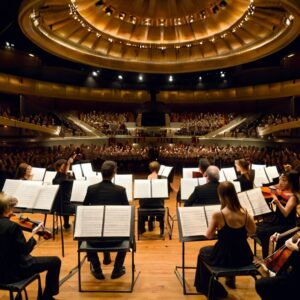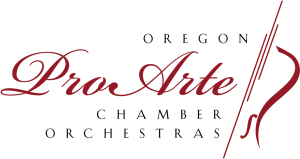When it comes to the pulsating heart of classical music, filled with the rich harmonies of orchestras, operas, and ensembles, there’s nothing quite like immersing yourself in one of the world’s most prestigious classical music festivals. They’re cultural phenomena that draw together the finest musicians, composers, and avid fans from around the globe. Among the glittering constellation of festivals, a few stars shine the brightest, including the Bayreuth Festival, the Salzburg Festival, and the Lucerne Festival.
The Bayreuth Festival

Nestled in the quaint town of Bayreuth, Germany, the Bayreuth Festival is a testament to the monumental legacy of Richard Wagner. Established in 1876, this festival was born from Wagner’s vision of having a dedicated venue for the performance of his epic operas, particularly the Ring Cycle. The festival takes place in the Festspielhaus, an opera house that Wagner himself conceptualized to ensure that his operas were experienced exactly as he intended, with custom acoustics and a unique orchestra pit that blends the music seamlessly with the on-stage action.
Attending the Bayreuth Festival is akin to a pilgrimage for Wagner enthusiasts. With a repertoire that strictly adheres to Wagner’s works, it offers a deep dive into the composer’s genius. The atmosphere is electric, filled with anticipation for interpretations of classics like “Parsifal” and “Tristan und Isolde.” Beyond the performances, the festival’s vibe is about celebrating Wagner’s innovation in opera and the festivity of being among those who truly appreciate his artistry.
The Salzburg Festival
Salzburg, the picturesque city birthed none other than Wolfgang Amadeus Mozart, hosts the Salzburg Festival, an extravaganza that stands as a tribute to its most famous son as well as a platform for showcasing the prowess of international classical music. Founded in 1920, this festival has grown to become one of the most anticipated events in the classical music calendar, embodying the spirit of creativity and excellence.
The Salzburg Festival’s charm lies in its music and in the breathtaking venues scattered across the city, from the grand Salzburg Cathedral to the intimate Mozarteum. The programming is a rich tapestry that weaves together opera, orchestral concerts, and chamber music, presenting both timeless masterpieces and contemporary compositions. What sets Salzburg apart is its commitment to pushing the boundaries of classical music, encouraging modern interpretations and premieres that make classical music accessible and relevant to today’s audience.
For attendees, the Salzburg Festival offers more than just concerts, it’s an immersive experience. The city itself, with its Baroque architecture and scenic landscapes, sets a magical backdrop. Imagine listening to Mozart’s symphonies in the very city where he composed them—it’s an unparalleled experience.
The Lucerne Festival
The Lucerne Festival in Switzerland offers a refreshing contrast to the historical gravitas of Bayreuth and Salzburg. Situated by the stunning Lake Lucerne and surrounded by Alpine scenery, the festival capitalizes on its mesmerizing location to offer a serene yet invigorating setting for classical music performances. Since its inception in 1938, the Lucerne Festival has aimed to bring together world-renowned orchestras, conductors, and soloists in a celebration of classical and contemporary music.
One of the festival’s highlights is the resident Lucerne Festival Orchestra, which was re-established under the direction of the late, great Claudio Abbado in 2003. The orchestra comprises top-notch musicians gathered from across the globe, ensuring performances of the highest caliber. Another distinguishing feature of the Lucerne Festival is its thematic programming, which changes annually, providing fresh perspectives and interpretations of classical music.
Attendees can expect an extraordinary range of concerts, from symphonic to solo performances, all taking place in the state-of-the-art KKL Luzern, a concert hall renowned for its acoustics. The Lucerne Festival is about passive listening, it engages the audience through talks, workshops, and even casual performances in public spaces, making classical music accessible to everyone.
Dive in and Experience the Magic
Embarking on a journey to explore the world’s most prestigious classical music festivals is akin to setting sail on an expansive ocean of human creativity and artistic expression. Each festival stands as a beacon, illuminating the rich tapestry of history, heritage, and the sheer depth of musical genius that has shaped the classical music landscape over centuries. From the intense, soul-stirring dramas unfolded in the opulent halls of Bayreuth, dedicated to the operatic masterpieces of Wagner, to the charming streets of Salzburg, where Mozart’s genius is celebrated in a city that breathes his legacy, and on to the tranquil, idyllic setting of Lucerne, which offers a panorama of natural beauty and of musical diversity and innovation—these festivals are more than just events; they are portals to the sublime. Each one, with its distinctive backdrop, ambiance, and programming, invites participants to a celebration of classical music’s enduring allure and the profound emotions it evokes.
Venturing into these festivals is to engage in a profound communal experience, uniting with people from all walks of life who share a common passion for the transformative power of music. They serve as epicenters of cultural exchange and intellectual stimulation, where music goes beyond entertainment to become a platform for dialogue, discovery, and the forging of bonds that transcend geographical and cultural boundaries. Within this vibrant atmosphere, where each note and melody weaves individuals into a larger narrative, attendees find themselves as an integral part of a continuous, dynamic story of human achievement and artistic pursuit. If you’re a discerning aficionado of classical compositions, a devotee of opera, or someone in search of an unparalleled cultural immersion, these festivals beckon with the promise of unforgettable experiences. Beyond the breathtaking performances, they offer the opportunity to be swept up in the fellowship of the arts, to revel in the shared joy, and perhaps, to be changed in subtle yet profound ways by the beauty unfolded. In essence, attending these festivals is about actively participating in a legacy of artistic excellence—an experience that is bound to echo in the heart and mind long after the curtain falls and the last note fades into silence.
